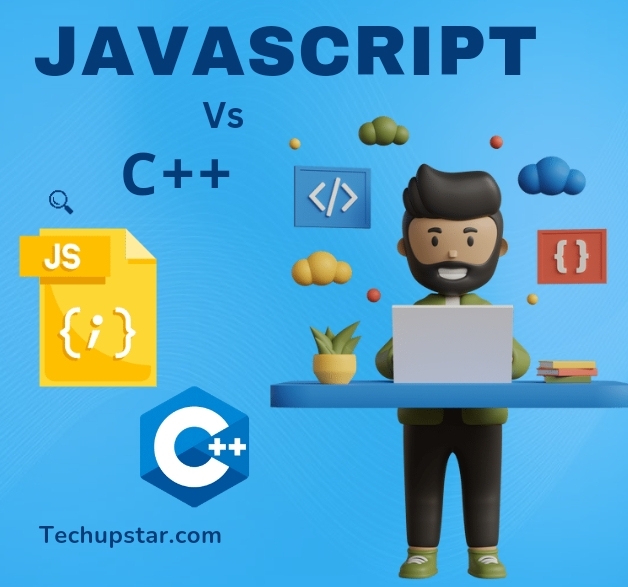Photo credit: weka.io
HPC cloud computing: Are you new to the world of computing or are you trying to understand the concept of “High-performance Computing (HPC) If any of the two assumptions is true then this article is for you. By reading this article you will be able to understand everything about HPC cloud computing as our experts will go deeply into it.
We advise you not to jump to any section of this article, as each section uniquely discusses each subheading. This article is also divided into sub-headings for easy coverage and understanding.
All the words used during this discussion are all simple and easy to understand. If after reading this article and you have questions please do well to send us your question through our designated email. And we will get back to it as soon as possible.
What is Hpc cloud computing?
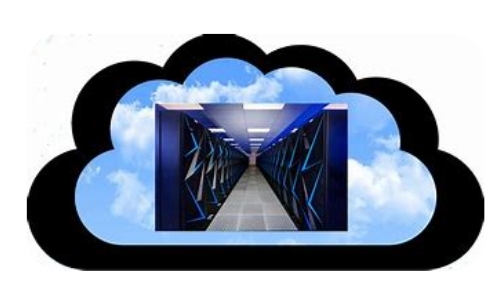
If you are in the computer science or informatics field, this concept hpc cloud computing shouldn’t be new to you but if you are a novice then pay close attention.
HPC stands for High performance Computing. hpc cloud computing means a practice of aggregating or upgrading computing power in a way that delivers greater and faster horsepower than the normal traditional Computers and servers.
hpc cloud computing are just like every other computing device only that they are more powerful than your regular computers.
Characteristics of HPC cloud computing
There many characteristics of hpc cloud computing which are as follows:
- There are more powerful than the traditional computers
- They possess high speed during data processing and can handle huge volumes of data at once.
- Cloud computing makes it possible to find solutions to the world ‘s biggest problems in science, engineering and business.
Read more: The Beginners Guide To Biomedical Engineering 3d Printing.
What is Hpc and htc in cloud computing?
Wondering if HPC and HTC are referring to the same thing or what they are in cloud computing. This section explains everything you need to know about it. Over the years the two concepts (HPC & HTC) have been used interchangeably by those familiar with scientific computing. However they mean different things, both are separate and different concepts in cloud computing.
I will be explaining them in a layman’s way so that you will comprehend what I am saying.
High throughput computing is used to perform smaller tasks. It is a computing approach that is designed with the objective of making several computers to quickly accomplish tasks that have been broken down into smaller units.
High performance Computing HPC is designed to handle more complex and difficult problems. For you.to understand this, imagine a computational task where all the sub-unit are literally not independent of all the other sub-units. I am more familiar with the Molecular Dynamics (MD) simulations of protein structure and dynamics.
What are the challenges of on-premise HPC deployments?
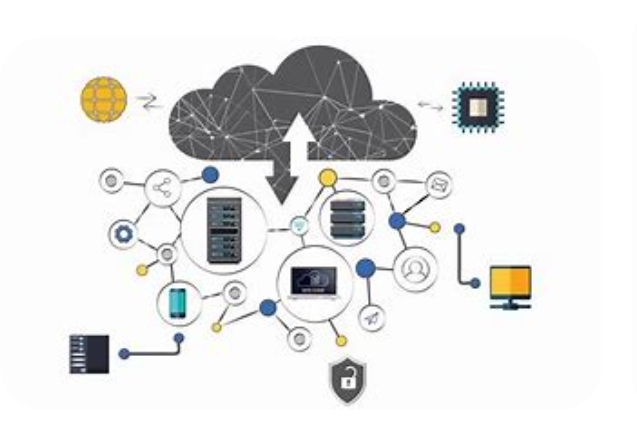
There are so many problems that is assigned with on-premise HPC deployment and that challenges is what we are going to be looking at in this section.
- Cost: the cost of setting up an on-premise HPC infrastructure can be very high, this might require the organization to invest heavily on hardware, networking equipment, cooling systems, and power infrastructure. In addition, the maintenance cost and operational expenses can be a bit high.
- Scalability: on-premise deployment practically limit scalability, this is because of lack of physical space and fixed hardware configurations. This means that scaling up computing resources require additional investments and infrastructure upgrade.
- Expertise and Resources: it requires more expertise and Resources to manage on-premise HPC infrastructure. Companies need to employ in-house experts who have the skill to configure, monitor, and maintain the system effectively. However employing in-house experts can be demanding for smaller business who lacks such financial strength.
- Time to Deployment: Deploying an on-premise HPC system can be time-consuming, as it involves tasks like infrastructure planning, procurement, installation, and configuration. This may delay time-sensitive projects that require immediate access to high-performance computing resources.
- Risk of Obsolescence: On-premise deployments can become outdated over time due to the rapid advancements in HPC technology. This can result in the system becoming less efficient and less capable compared to newer cloud-based or hybrid solutions.
- Limited Accessibility: On-premise HPC deployments are typically confined to a specific location, limiting accessibility for remote teams or collaborators. This can hinder collaboration and hinder organizations that operate across different geographical locations.
- Disaster Recovery: Ensuring robust disaster recovery mechanisms for on-premise HPC deployments can be challenging. Backup and recovery solutions need to be implemented to safeguard against hardware failures, natural disasters, or other unforeseen events.
- Flexibility and Agility: On-premise deployments may lack the flexibility and agility of cloud-based or hybrid solutions. Scaling resources on-demand and adapting to changing workload requirements can be more labor-intensive and time-consuming, as it involves physical hardware changes or upgrades.
- Energy Consumption and Environmental Impact: On-premise deployments consume significant amounts of energy, resulting in higher operational costs and environmental impact. Managing power and cooling requirements efficiently to minimize these impacts can be challenging.
To overcome these challenges, many organizations are adopting cloud-based or hybrid HPC solutions that offer more flexibility, scalability, and reduced management overhead.
Read more: How To Become A Cryptocurrency consultant
HPC Cloud—What are the key considerations when choosing a cloud environment?
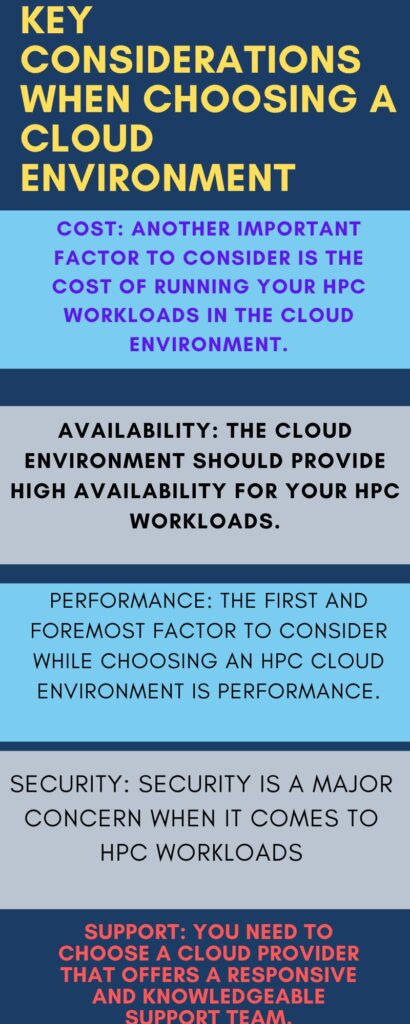
Before choosing a cloud environment these are some of the key considerations you should look out for.
1. Performance: The first and foremost factor to consider while choosing an HPC cloud environment is performance. You need to ensure that the cloud provider can offer high compute power, storage, network bandwidth, and low latency to support your HPC workloads.
2. Cost: Another important factor to consider is the cost of running your HPC workloads in the cloud environment. You need to ensure that the pricing model is fair and transparent, and that you can manage your costs to avoid any surprises.
3. Availability: The cloud environment should provide high availability for your HPC workloads. This can be achieved through redundant infrastructure, data backups, and disaster recovery options.
4. Security: Security is a major concern when it comes to HPC workloads. You need to ensure that the cloud environment offers strong security measures to protect your data and infrastructure.
5. Support: You need to choose a cloud provider that offers a responsive and knowledgeable support team. This will help you resolve any issues quickly and keep your HPC workloads running smoothly.
6. Integration: You need to ensure that the cloud environment can integrate with your existing HPC workflows and tools. This will help you streamline your operations and reduce the time and effort required to manage your HPC workloads.
Read more: What You Need To Know About Quantum Algorithm
What is the future of HPC
As the world moves to digital area, HPC cloucd computing have a bright future as it has been used across different sector, here are some trend that will help reshape the future of HPC cloucd computing.
1. More powerful and efficient systems: As the demand for computational power continues to grow, HPC systems will become more powerful and efficient. This will be achieved through advancements in hardware architecture, such as the development of new processors, memory technologies, and interconnects.
2. Convergence with AI: HPC and AI are already converging, and this trend will continue. The combination of HPC and AI will enable the processing of large amounts of data in real-time, leading to new insights and discoveries across various fields.
3. Cloud-based HPC: The use of cloud-based HPC systems is on the rise, and this trend is expected to continue. Cloud-based HPC offers scalability, flexibility, and cost-effectiveness, making it an attractive option for organizations of all sizes.
4. Edge computing: As the demand for real-time processing increases, edge computing is becoming more important. HPC systems will be used to power edge devices, such as autonomous vehicles, drones, and IoT sensors, enabling them to process data in real-time.
5. Quantum computing: Quantum computing is still in the early stages of development, but it has the potential to revolutionize HPC. Quantum computers can solve problems that are impossible for classical computers, which could lead to breakthroughs in fields such as drug discovery, materials science, and cryptography. However, there are still many technical challenges that need to be addressed before quantum computing becomes a practical HPC solution.
High-Performance Computing vs. Cloud Computing
HPC cloucd computing and cloud computing are two distinct computing paradigms that are used to address different computing needs.
High-performance computing is focused on providing large-scale computing power for scientific and engineering applications that require the processing of significant amounts of data and the simulation of complex models. It typically involves the use of specialized hardware and software, such as supercomputers, clusters, and grid computing systems. High-performance computing is often used in fields such as physics, chemistry, bioinformatics, and engineering.
In contrast, cloud computing is a computing model that delivers on-demand computing resources over the internet from a shared pool of computing resources. The resources can include computing power, storage, and software applications. Cloud computing is used for a broad range of applications, including email, file storage, web hosting, and software development.
Here are some of the key differences between high-performance computing and cloud computing:
1. Purpose: High-performance computing is used to support scientific and engineering applications that require high computational power and processing of large amounts of data, while cloud computing is used for a wide range of applications, including personal and business computing needs.
2. Infrastructure: High-performance computing typically uses specialized hardware and network infrastructures such as supercomputers, clusters, and grids, while cloud computing uses virtualized environments hosted on large data centers.
3. Scalability: High-performance computing is designed to handle large-scale computing tasks with fixed computing resources, while cloud computing is designed to be scalable and to adjust computing resources to meet changing demands.
4. Security: High-performance computing is often used for sensitive scientific research that requires tight security controls, while cloud computing poses security risks that can be mitigated through robust security features and best practices.
5. Cost :HPC cloucd computing is typically more expensive than cloud computing due to the specialized hardware and infrastructure required, while cloud computing offers a pay-as-you-go model that can be more cost-effective for many applications.
Benefits of HPC in the Cloud.
HPC in the cloud offers so many benefits to the organizations or businesses that are using them. Below are some of those benefits:
1. Flexibility and scalability: Cloud-based HPC solutions offer the flexibility and scalability required to support changing workload demands. Users can easily scale up resources during peak periods, and scale back down when demand decreases.
2. Cost-effectiveness: HPC infrastructure can be expensive to purchase and maintain. Cloud-based solutions allow users to pay only for what they need, reducing the overall cost of running HPC environments.
3. Accessibility: Cloud-based HPC solutions are accessible from anywhere, allowing users to run applications and simulations regardless of their physical location.
4. Advanced features: Cloud-based HPC solutions often come equipped with advanced features such as machine learning and AI tools, making it easier for users to develop advanced applications.
5. Improved collaboration: Cloud-based solutions make collaboration easier by allowing users to share data and applications across teams and departments seamlessly.
6. Better performance: Cloud-based HPC environments often come equipped with the latest hardware and software, offering higher performance than on-premises HPC environments.
7. Reliability: Cloud providers offer service level agreements, guaranteeing high levels of reliability, uptime, and performance, giving users peace of mind that their applications and data are secure and accessible.
Enabling New Opportunities for Chip Designers.
As the demand for advanced and highly capable chips continues to grow, chip designers are faced with a host of challenges. These include rising design complexity, shrinking device geometries, and a need for more specialized skills and expertise. However, new tools and technologies are emerging that promise to help designers overcome these obstacles and unlock new opportunities.
One such technology is design automation, which allows designers to automate time-consuming and repetitive tasks such as layout and verification. This not only speeds up the design process, but also reduces errors and ensures greater consistency in the final product. Other advanced tools include artificial intelligence and machine learning, which can help chip designers to more quickly identify design issues and optimize performance.
In addition to these technical advances, chip designers are also benefiting from new collaboration models and business models. For example, more designers are working in teams, leveraging a diverse set of skills and expertise to tackle complex design challenges. Additionally, new business models are emerging that allow for greater flexibility in chip design, such as IP-based design and system-level design.
Overall, the future looks bright for chip designers, with new technologies, models, and tools that promise to streamline and optimize the design process. As demand for high-performance, specialized chips continues to grow, chip designers will play a critical role in shaping the future of technology and enabling new opportunities for innovation.
Synopsys, EDA, and the Cloud.
Synopsys is a global technology company that provides electronic design automation (EDA) solutions to semiconductor and electronics companies. EDA refers to the process of designing and validating electronic systems, including integrated circuits, printed circuit boards, and systems-on-chip.
The use of cloud technology is growing rapidly in the semiconductor and electronics industries. Cloud computing provides numerous benefits, including flexibility, scalability, cost-savings, and improved collaboration. As such, Synopsys has been actively working to ensure that its software tools can run effectively in cloud environments.
Synopsys offers a range of cloud-based EDA solutions, including simulation, emulation, verification, and analysis tools. These solutions can be deployed in private, public, or hybrid cloud environments. The company also offers cloud-based software licensing, allowing customers to easily scale their license usage as needed.
In addition to Synopsys, other EDA providers are also expanding their cloud offerings. For example, Cadence Design Systems offers cloud-based EDA solutions through its Cadence Cloud portfolio. Similarly, Mentor Graphics offers cloud-based solutions through its Mentor Cloud offering.
What are the components of HPC?
The components of HPC (High-Performance Computing) can vary depending on the specific system and application but typically include:
1. Compute Nodes: These are the primary processing units that perform the calculations in parallel.
2. Memory: HPC systems require large amounts of fast memory to support computation and data analysis.
3. Network: The network infrastructure provides interconnectivity between compute nodes and I/O devices.
4. Storage: HPC systems require high-speed, high-capacity storage systems to support the processing and analysis of large datasets.
5. Power and Cooling: HPC systems require significant power and cooling infrastructure to support the high computational densities and heat loads.
6. Software: HPC systems typically require specialized software, including operating systems, compilers, and software libraries for optimized performance.
7. I/O Devices: Input/Output (I/O) devices, such as keyboards, mice, and displays, are used to interact with and control the HPC system
Why is HPC In The Cloud?
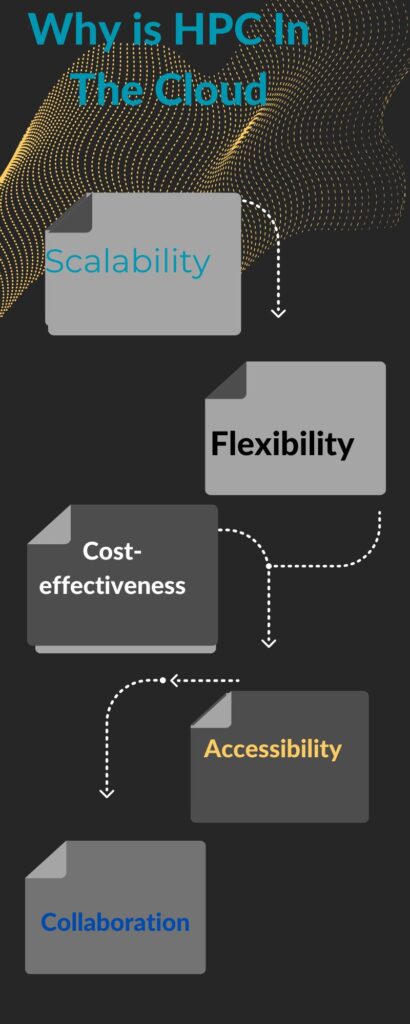
Are you wondering why HPC I’d deployed in the cloud?, Worry no more as this section is dedicated to telling you why HPC is deployed in the cloud.
HPC (High Performance Computing) in the cloud is becoming increasingly popular due to the following reasons:
1. Scalability: Cloud computing offers virtually unlimited compute resources, which is crucial for HPC workloads that require large-scale parallel processing.
2. Flexibility: Users can easily spin up and down instances according to their computational requirements rather than being confined to a specific set of hardware.
3. Cost-effectiveness: Traditional HPC infrastructure is expensive to maintain and upgrade, but cloud HPC eliminates the need for capital expenditures and enables users to pay only for what they use.
4. Accessibility: Cloud HPC makes it easier for researchers and scientists to access HPC capabilities without having to be physically present in a specific location.
5. Collaboration: With cloud HPC, geographically dispersed teams can work together on a shared platform and collaborate on large-scale computations, simulations, and data analysis.
Will cloud computing eliminate jobs?
This is a trending issue, especially in the IT industry. This is because the more advanced and sophisticated programs, softwares and processes emerge, the more some jobs will become irrelevant and eventually lead to job loss.
Without any form of guilt, I will categorically say that hpc cloud computing will eliminate jobs not tomorrow or in the future. As I am writing this some jobs are going obsolete because of cloud computing.
Even though IT is not a manufacturing industry, both of them share some things in common.
The adoption of cloud computing will mean that some jobs will be automated and some IT jobs will go obsolete.
Automation of work is more economical friendly because human beings are no longer needed and this will eventually reduce labor and cost. It will also reduce the variability in the results, which as well take care of overhead, errors and down time.
For instance, as your data center becomes smaller, the staff who develop, maintain and even troubleshoot your data center, servers, and applications are no longer needed.
Yes it’s no longer a theory as it used to be years back, we all know that some Jobs are fading away. As cloud computing is being adopted don’t bury your head in shame.
There are always remedies for everything as long as you are still Breathing. What you should do is to prepare for the changes that will likely occur.
For instance, if you have a job in the data center department, learn and Master what the equivalent position is in a cloud company and ensure to make the jump as soon as possible or start learning something else because from statistics cloud providers only need a few percent of today’s data center staff.
The following field will experience high loss of job though automation:
- Banking and Finance
- Manufacturing industry
- IT industry
- Medical industry
- Food processing industry.
How cloud computing helps business.
Cloud computing is becoming more useful but in a business, industry or firm. Both small, medium and large businesses can benefit from automating their data processing through cloud computing.
Several businesses tend to choose the ease and convenience of cloud computing over the Normal traditional HTC Computing and on-premise software when it comes to processing, collaboration and data storage.
Cloud computing gives businesses an opportunity to store their data online instead of using traditional hard drives that can be corrupted by any simplest mistake.
If you are still confused about what cloud computing is and how you use them daily in your business, the simplest exam available is; if you use Google Doc for Writing and editing, Google Drive or Dropbox for storage and Slack for team communication. You are actually using cloud computing.
Organization or Business that works with cloud computing benefits from enhanced collaboration, easy and quick access and fast work/job delivery.
How cloud computing can help small business
- With cloud computing Businesses can access web-based applications, processing, data storage and other services.
- Cloud computing services include infrastructure, platforms and software.
- Cloud computing helps Businesses by providing accessible data, assisting automatic syncing, aids in remote work facilitation and offers easy file backups.
How cloud computing has changed business.
Nowadays, cloud computing is a game changer for some businesses. It has revolutionized how firms or companies carry out their Business. Since the conceptualization of cloud computing, it has grown as an industry of its own. Good number of firms have benefited greatly from this transition. Cloud computing has made our technology stacks more robust and viable. From the trends, soon there will be an industry of cloud computing professionals and software engineers.
Cloud computing has changed Business through these factors.
1. No need for Infrastructure
You see, because of cloud computing, smaller businesses can now do their data computational tasks without owning an infrastructure. In the past this was actually a problem as the cost of setting up a Computing infrastructure was unimaginable. Only larger business organizations can afford it then.
2. Lower Costs
Due to the emergency of cloud computing, companies no longer have the need to spend much time and huge funds maintaining their own physical hardware. This has led to lower cost and is the main advantage of cloud computing.
3. Flexible Workplace
With cloud computing coming into the picture, software developers can now work remotely. This is because cloud developers don’t need to be on-site to be able to maintain physical access to servers. Developers can perform their duties at the comfort of their home and it will still be as effective as working from the office. All this is done through the internet.
4. Unlimited Data Storage and Security
Another benefit of cloud computing infrastructure is that it offers businesses unlimited storage. As large as your data or file, you will always have a place to store them. This service is paid service and as long as the organization can afford it , it will be accessible to them. Cloud providers put in the effort to ensure that their client data is well protected and secured.
Why use HPC
The sole purpose of HPC is to assist scientists to locate renewable energy, know more about the evolution of the universe, predict and also track storms and develop new material. Media and entertainment industry also make use of HPC. It is used to edit some special features in movies, insert mind-blowing special effects and stream live events around the world.
Is through cloud computing that groundbreaking scientific discoveries are made, gaming-changing innovations are born, and Quality of life for Millions of people around the world are changed.
HPC is considered as the building block of scientific, industrial and societal advancements.
Nowadays, technologies like the Internet of things (IoT), artificial intelligence (AI) and 3-D drawing are evolving. This means that the quantity of data that organizations handle will increase exponentially. Cloud computing is necessary for tasks like streaming live sporting games, tracking a developing storm, new product storming and also to analyze storm Market.
When is cloud computing used?
There are several applications of cloud computing in real life. Cloud computing is a flexible computational model and a set of interlinked computers that allow firms or companies to have access to cloud services through the internet. Those cloud services are not free, there is pay as you go.
Even though hpc cloud computing is a somewhat new paradigm that has revolutionized both business and individual computer usage. hpc Cloud computing is becoming more popular.
Cloud computing can be used in the following scenario.
- Cloud Computing is used when companies want to perform secured file storage.
- Cloud Computing is used when a firm wants to compute a big amount of data.
- It is used during data backup and archiving
- It is used during software development and testing.
Hpc cloud computing
HPC cloucd computing is used to describe a network of many computers in clusters and combining their computational power to perform some complex arithmetical calculations at a very high speed. hp Cloud Computing provides companies an avenue to scale their HPC applications.
HPC cloud computing is also described as the hard and software tools used for digital models or developing new applications and checking how they perform in the real world.
The concept of HPC cloud computing started in the mid-1900s, the invention of powerful computers aggregated with new engineering technology have transformed the computing world into what it is today.
Hpc cloud vs on premise
Before now, On premise solution was the first and only option that companies can use to set up, maintain and manage their servers for hosting websites and applications. But the emergence of cloud computing has changed the norms.
Today organizations can access devices effortlessly from anywhere around the world. It has also made collaborating with team members easily.
Below are the major differences between cloud computing and premise.
Cloud Computing
You are making use of cloud computing software, you will all pay for the resources you used. It calculates all the costs incurred in upkeep maintenance. Cloud also adjusts prices from time to time.
On-Premise
If you are making use of premise software, you will be charged more fees than that of cloud computing service. Because it needs ongoing server hardware installation, maintenance, space, and power consumption costs.
Read more: What’s the latest AI writing assistant 2024
Hpc cloud providers
There are a lot of companies that provide cloud computing services. Below are some of the providers.
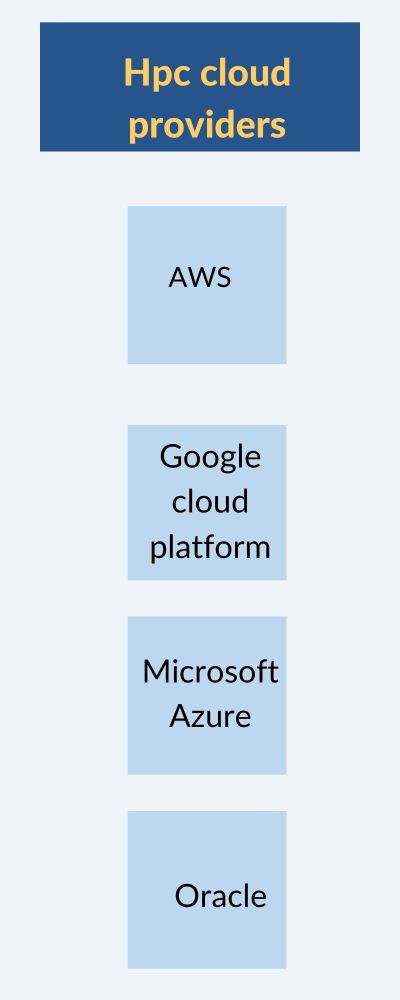
This company is reliable and dependable for a cloud computing service.
Hpc cloud computing conference
Hpc cloud computing conference is a conference organized to educate developers on new trends, new development, and how to use cloud computing services.
This conference is mostly sponsored by cloud service providers and is a great way to connect with fellow developers.
Hpc cloud services
Cloud services include:
- Complex computational Business
- Engineering and scientific problem solving
- Computer modeling
Who owns cloud computing
The answer to this question is that no one single-handedly owns cloud computing. You can definitely invest in it. The files or data you stored on the cloud services is yours.
Conclusion.
HPC (High-Performance Computing) deployment refers to the implementation and configuration of high-performance computing systems, which typically consist of large clusters of interconnected servers or supercomputers designed to handle intensive computational workloads. This involves hardware setup, installation and configuration of required software, network setup, security configuration, and system performance optimization. HPC deployment is commonly used in scientific research, engineering, and other data-intensive applications where traditional computing systems are not powerful enough or fast enough to handle the workload.
We have done the hard work in bringing together this piece of articles. We have discussed everything related to HPC cloud computing and reading this has given you what the concept is. In case you have a question about any of the concepts we discussed, kindly send us your question through the contact us email. We will be glad to attend to your question.


